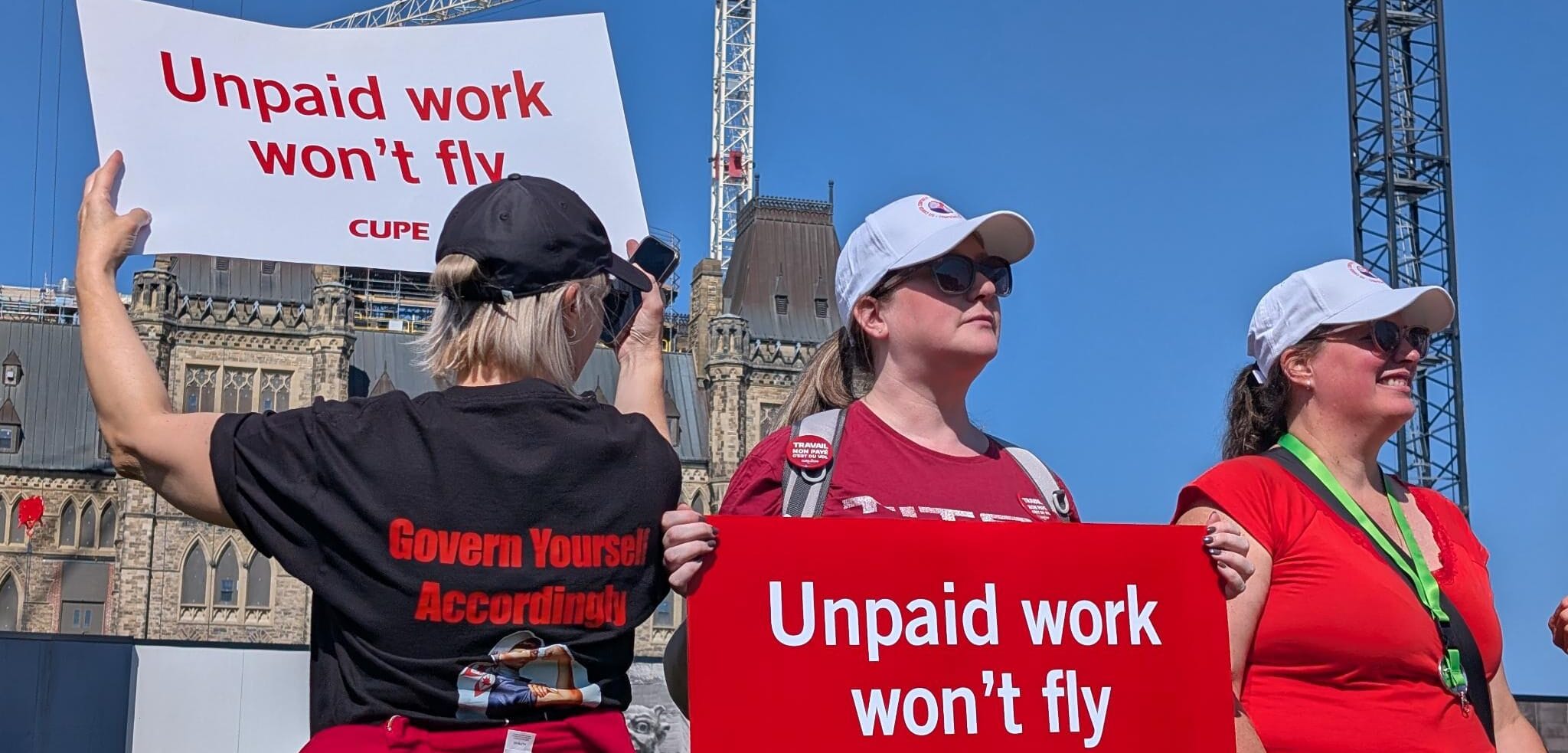“Unpaid work is not over and we are not going to rest until it is,” Wesley Lesosky, president of the CUPE Air Transport Branch, told more than 150 people yesterday. Air Canada flight attendants gathered on Parliament Hill in Ottawa to denounce the government's inaction in the face of their thousands of unpaid hours each year.
“What is clear is this,” Lesosky continued to loud applause from the crowd, “The federal government must stop colluding with billion-dollar airlines to suppress our wages and keep us flight attendants under the poverty line.”
It should be noted that Lesosky's statement on unpaid work contradicts the August 19 statement by the leadership of the Canadian Union of Public Employees (CUPE). At that time, CUPE claimed that the just-announced tentative agreement with Air Canada put “an end to unpaid work.” A few days later, the sentence disappeared from the union's website without public explanation.
In reality, the agreement proposed to flight attendants provided for a lump-sum payment of 60 to 70 minutes at 50% of their salary before each flight. It was rejected by 99.1% of union members, who wanted full compensation for their work. This forced management to keep up the pressure and remobilize their members yesterday in Ottawa, asking the federal government to intervene.
In the meantime, the details of the salaries in the new employment contract will be decided by binding arbitration in the coming months.
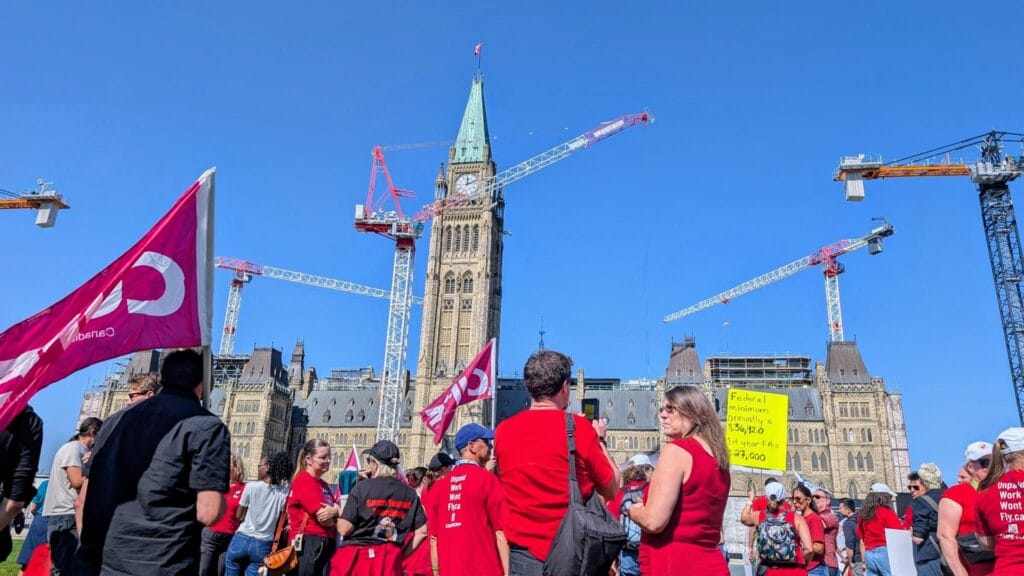
A Crowd That Wants More
The North Star spoke to several flight attendants, who requested anonymity. Most expressed frustration at not being consulted before the decision to end the strike was made.
They had defied the Carney government's order to return to work, risking heavy fines. Ready to fight to the end, they say they feel used by their leadership, who had promised not to give in... before seeing their bargaining committee sign an agreement three days after the strike began.
Despite everything, the crowd seemed enthusiastic and motivated.
Several prominent figures took the stage to call on the federal government, without necessarily mentioning new strikes or even new mobilizations. Among them were the president of the Canadian Labour Congress, the president of the Ontario Federation of Labour, NDP MP Alexandre Boulerice, and the president of the Air Canada local in Montreal.
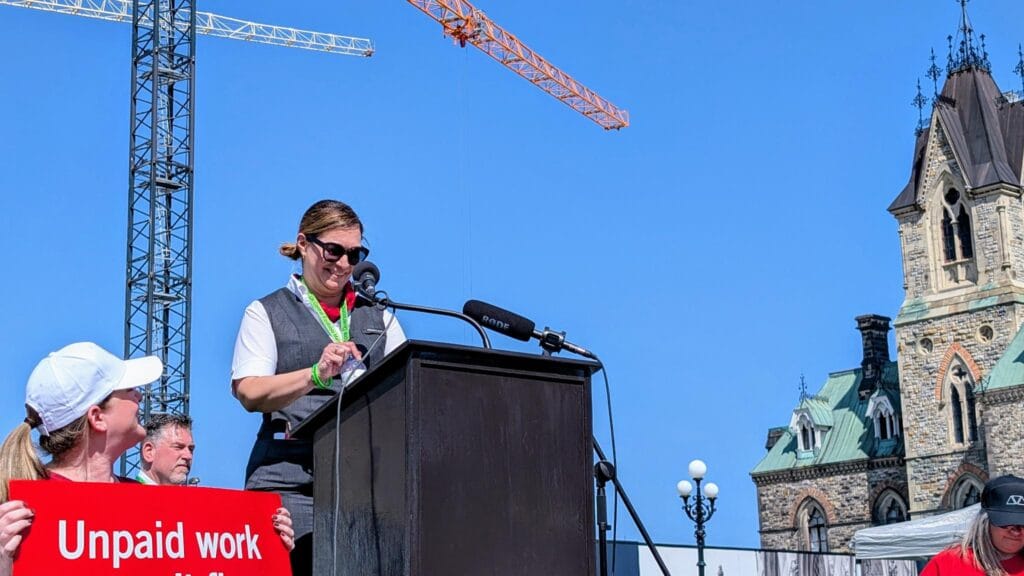
For her part, Alia Hussein, representative of WestJet flight attendants, announced that they will soon begin negotiations for a new contract. “The airline industry has long relied on unpaid hours expecting flight attendants to accept this as the norm,” Hussein said indignantly at the microphone.
In fact, since the early days of aviation, flight attendants have only been paid for their flight hours, working approximately 35 hours of unpaid work per month before takeoff and after landing. These workers, who are essential to flight safety, often earn less than $2,000 per month at the start of their careers, despite the billions in profits made by airlines.
On September 2, an Air Canada plane in Denver was evacuated due to the smell of burning electrical components. The flight attendants who coordinated the evacuation did so voluntarily, as they had not yet been paid.
The NDP Gets Involved
In contrast to Hussein's announced grassroots campaign, NDP interim leader Don Davies said he would introduce legislation to repeal section 107 of the Canadian Labor Code and ban unpaid work in aviation. Section 107 allows the government to break federal strikes almost at will.
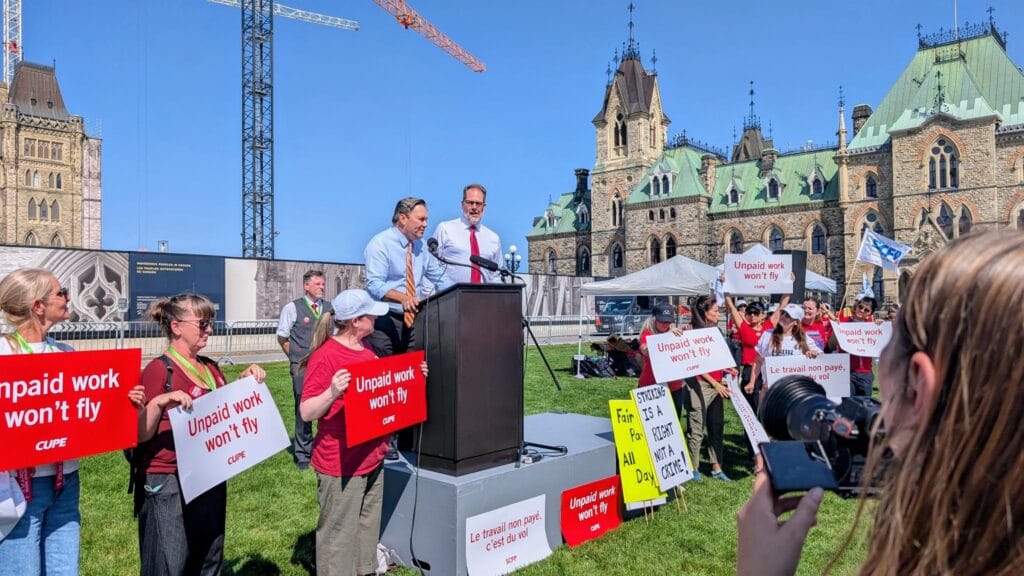
But in his desire to present himself as a defender of flight attendants, the career politician quickly got bogged down: in 2003, he himself negotiated the most painful concessions in their history.
Between his stint with the Alberta NDP in the 1980s and his federal election in 2008, Davies worked as director of legal services for Teamsters Canada. In 2003, the union represented flight attendants and customer service agents at Jazz, a regional subsidiary of Air Canada. At the time, the carrier was on the verge of bankruptcy after overpaying to buy out a struggling competitor. A few months later, Air Canada filed for bankruptcy protection, leaving employees and the union to deal with the fallout.
“I went through, as you did, the [restructuring] process,” he told the crowd. He then praised the “sacrifice” of the flight attendants who, under pressure from the government, Deutsche Bank (a new investor), and their own union leadership, had accepted a drastic reduction in their conditions to “save the company.”
However, The North Star confirmed directly with Davies that he was indeed one of the negotiators for Jazz in 2003. The agreements signed by union representatives at the time, yielding to threats of bankruptcy from a company that had shot itself in the foot with its acquisition, caused a massive downturn in the industry. Wages fell by 14%, thousands of workers were laid off, and several years of wage stagnation followed.
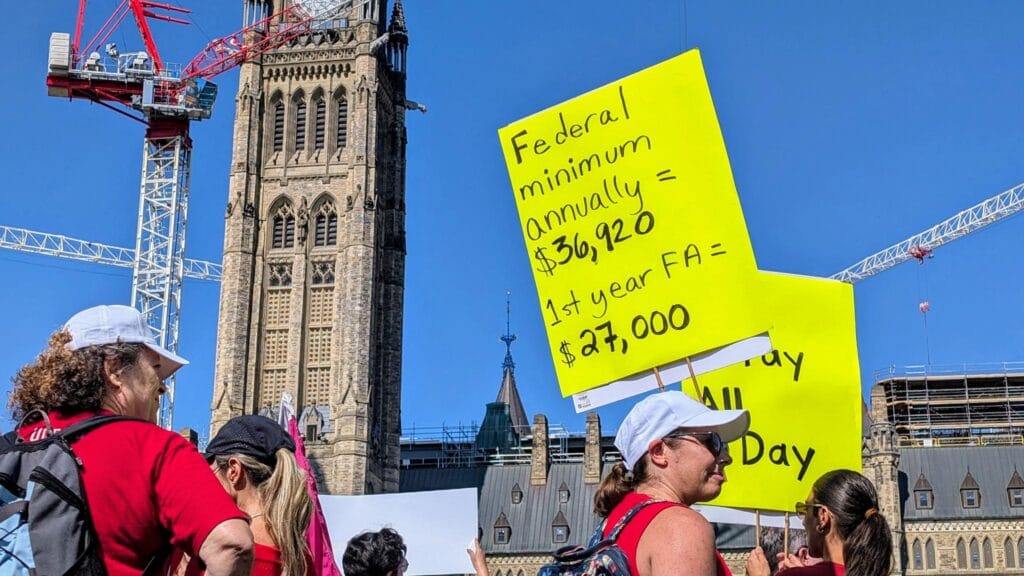
A Controversial Speech
Closing the rally, CUPE National President Mark Hancock said, “while we didn't get rid of all of the unpaid work we kicked that damn door down, my friends. [...] because all of you walking those [picket] lines.”
Hancock caused a stir on August 17 when he said he was willing to go to jail to fight unpaid work and section 107. He then tore up the back-to-work order during a speech that fired up the crowd.
In Ottawa yesterday, Hancock did it again. “If any government across this country tries to bring in legislation like 107, I have a message for them,” he said before tearing up the Air Canada flight attendants' back-to-work order again.
At the end of the event, a dozen flight attendants approached Hancock. The workers expressed their frustration at not being able to vote before the end of the strike, adding that all their power had disappeared as soon as they returned to work.
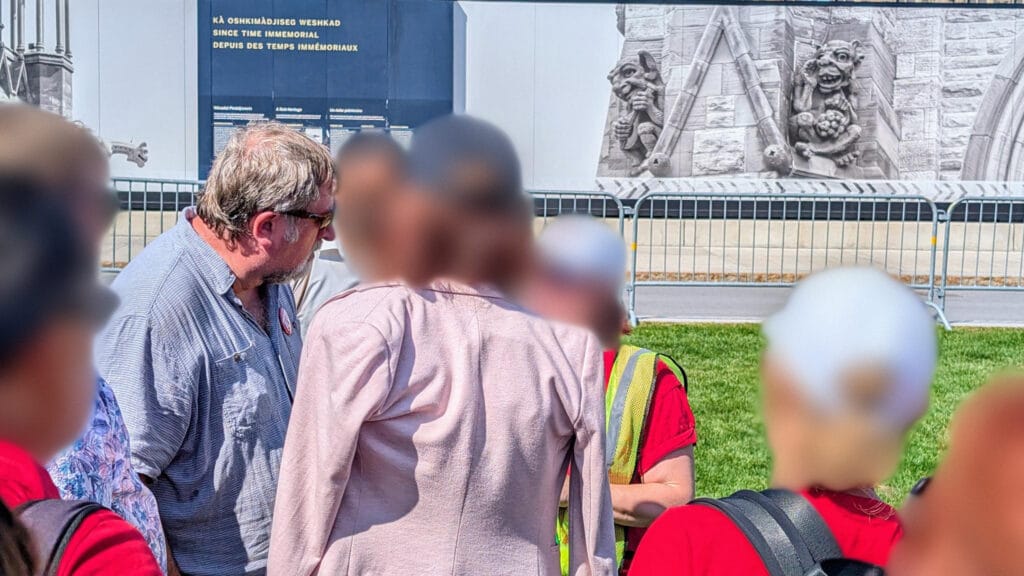
Caught off guard, Hancock replied, “That's the way normal bargaining happens and… I guess this wasn't exactly normal, but once you get a tentative deal, you go back to work, generally.” One worker retorted that they could have voted before returning to work, since the strike was already illegal. “That was part of the tentative agreement,” he simply replied.
The discussion, which lasted more than five minutes, was marked by the flight attendants' frustration with management's broken promises. Hancock and a few union representatives advised them to contact the bargaining committee for more information, but many seemed dissatisfied with the answers they received.
Despite his frustration, one flight attendant concluded, “Don't get me wrong. We know who the real enemy is,” pointing to the Canadian Parliament. The flight attendants interviewed by The North Star confirmed their determination to fight the government. Despite tensions with the union, they are not ready to give up and are stepping up discussions among themselves.


